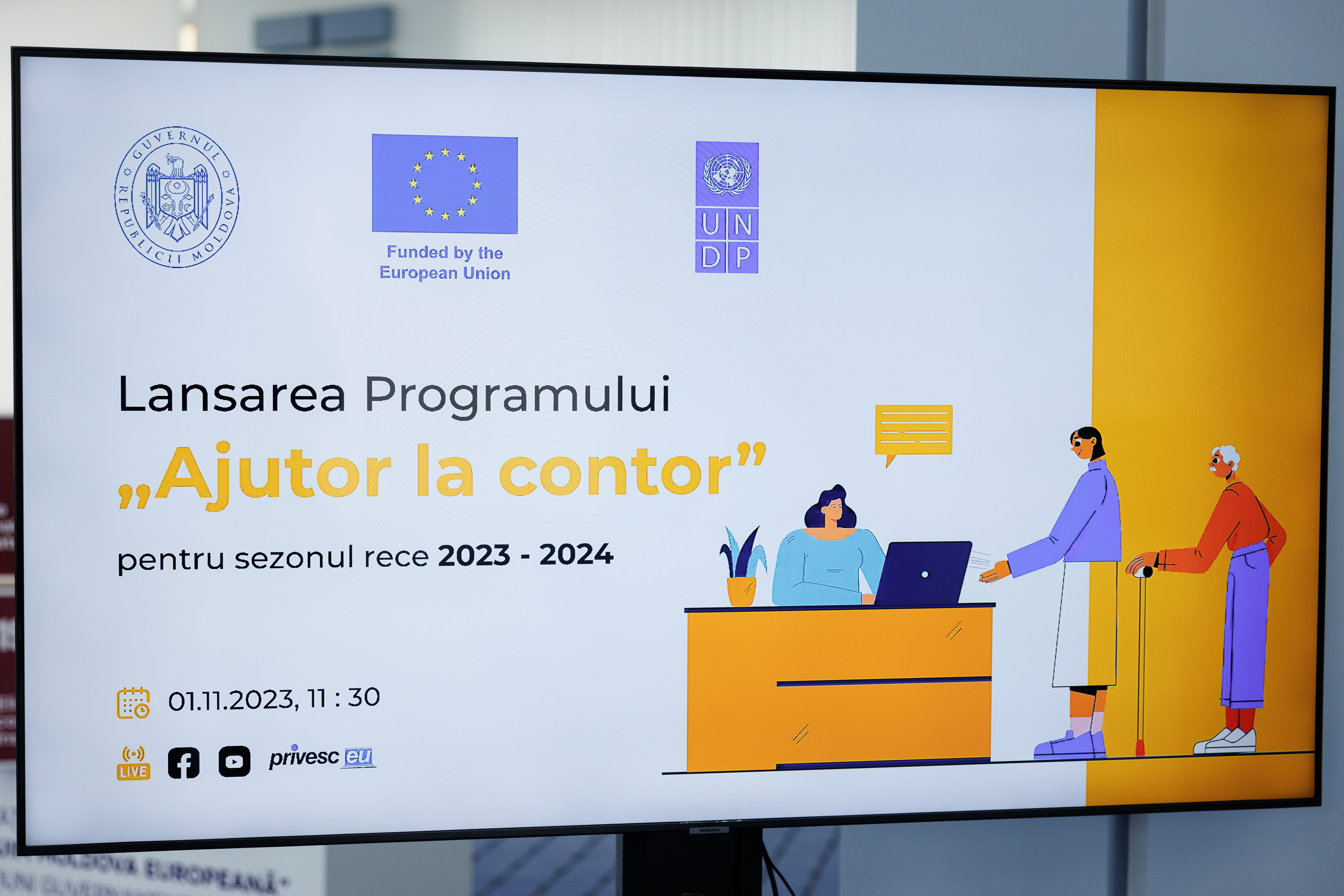 Energy Vulnerability Reduction Fund
Ensuring an equitable energy transition for energy-vulnerable households in Moldova
Energy Vulnerability Reduction Fund
Ensuring an equitable energy transition for energy-vulnerable households in Moldova

Challenges
Energy vulnerability or energy poverty is an emerging form of poverty in Moldova, given the consequences of the energy crisis and the potential impact of energy inflation on the incomes of Moldovan households. Since October 2021, Moldova has faced a significant increase in gas prices due to very tight global energy markets and a recently amended contract with Gazprom. Energy security in Moldova is still being hampered by many challenges, including its dependence on imported energy.
Moldova entered into an energy crisis in October 2021, when gas and electricity shortages caused tariffs to spike. In 2022, prices increased sevenfold for natural gas and 400% for electricity. As a result, ahead of winter 2022, more than 70% of the households in the country were deemed energy-vulnerable, spending more than 10% of their incomes on energy, in particular on heating during the cold period of November through March.
Early income simulation by UNDP suggests that the increase in the number of people living in poverty would be of about 250 000 people, reaching 520 000 people or 21% of the population. The incidence of poverty in the country, as measured with the $5.50-a-day poverty line (PPP 2011) was estimated at 14% of the population in 2020 (up from 10.5% in 2019 as a result of the pandemic-induced contraction), and such incidence would have declined in 2022 by 3 percentage points in the absence of the crisis, reaching 11% of the population.
Towards a Solution
In order to tackle the impact of the energy crisis, with technical support from UNDP, the Government of Moldova introduced a Law on the Energy Vulnerability Reduction Fund in July 2022 (Law No. 241/2022), in force since September 2022. The Fund aims to prevent and combat energy vulnerability and to increase energy accessibility among vulnerable consumers. It uses an evidence-based, on-bill, compensation scheme to minimise the negative impact of energy inflation on Moldovan households. After the successful impact it achieved during the 2022-23 heating season, registration was open for the 2023-24 heating season.
The EVRF is linked to an Energy Vulnerability Information System through which households can apply online, directly, or with the help of a social assistant or a librarian. Each applicant is automatically ranked into one of seven energy vulnerability categories (from extremely vulnerable to non-vulnerable) through a detailed algorithm that provides full transparency on the system of categorisation and compensation. A reduced tariff is then applied to bills for natural gas, electricity, or centralised heating. The most vulnerable households who use firewood or coal for heating are eligible for a monthly cash transfer.
UNDP supported the development of the Energy Vulnerability Information System, as well as the creation and operation of a call centre to provide information on the registration procedure. Other UNDP-supported aspects include the communication campaign (radio and TV spots, posters, billboards, social media assets, registration video tutorials), the training of social workers and librarians and their provision with paper registration forms and additional stationary materials.
Main accomplishments
- Up to 895,000 households — approximately 75% of all Moldovan households — have benefitted from on-bill compensations between November 2022 and March 2023. Out of these, 595,535 benefitting households were ascribed a very high category of energy vulnerability.
- 57% of natural gas bill costs and 59% of the costs of centralised heating bills were compensated.
- According to the UNDP impact assessment of the Fund, the compensations reduced the level of energy poverty by 43% and had the greatest impact on the most vulnerable families.
- By the end of December 2023, more than 776,000 households have applied for compensation for the 2023-24 heating season in the Energy Vulnerability Information System. Out of these, 274,000 families received a monthly monetary payment of 800 MDL.
- The EVRF is triggering important modernisations of the national social protection system, the Ministry of Labour and Social Protection having embarked on a mission to digitalise its other services, through the RESTART reform, modelled on the EVRF experience.
Key contributors
In order to alleviate the impact of the energy crisis, the Republic of Moldova was supported by external partners in the form of direct budget support. The key contributors to the Energy Vulnerability Reduction Fund are Moldova, the European Union, Germany, World Bank Multi-Donor Trust Fund (U.S. Government and Norwegian Government contribution), Lithuania, Slovakia, Czech Republic, Sweden, Switzerland and Italy.
Contact Information
Countries involved
Supported by
Implementing Entities
Project Status
Project Period
URL of the practice
Primary SDG
Primary SDG Targets
Secondary SDGs
Secondary SDG Targets
Similar Solutions
| NAME OF SOLUTION | Countries | SDG | Project Status | |
|---|---|---|---|---|
A-Card Initiative |
Republic of Moldova | 10 - Reduced Inequalities | Completed | View Details |
Accelerating Digital Transformation in All Ministries in Bangladesh Promoting the rapid design and implementation of plans to digitize all ministries and subordinate government institutions in Bangladesh |
Republic of Moldova | 10 - Reduced Inequalities | Ongoing | View Details |
Accessible Digital Textbooks Promoting inclusive education through Accessible Digital Textbooks |
Republic of Moldova | 10 - Reduced Inequalities | Completed | View Details |
ADELANTE Triangular Cooperation European Union – Latin America and the Caribbean |
Republic of Moldova | 10 - Reduced Inequalities | Ongoing | View Details |
AfDB-Brazil South-South Cooperation Trust Fund A fund to promote South-South partnerships and knowledge-sharing among African countries |
Republic of Moldova | 08 - Decent Work and Economic Growth 10 - Reduced Inequalities 12 - Responsible Consumption and Production 17 - Partnerships for the Goals | Ongoing | View Details |
